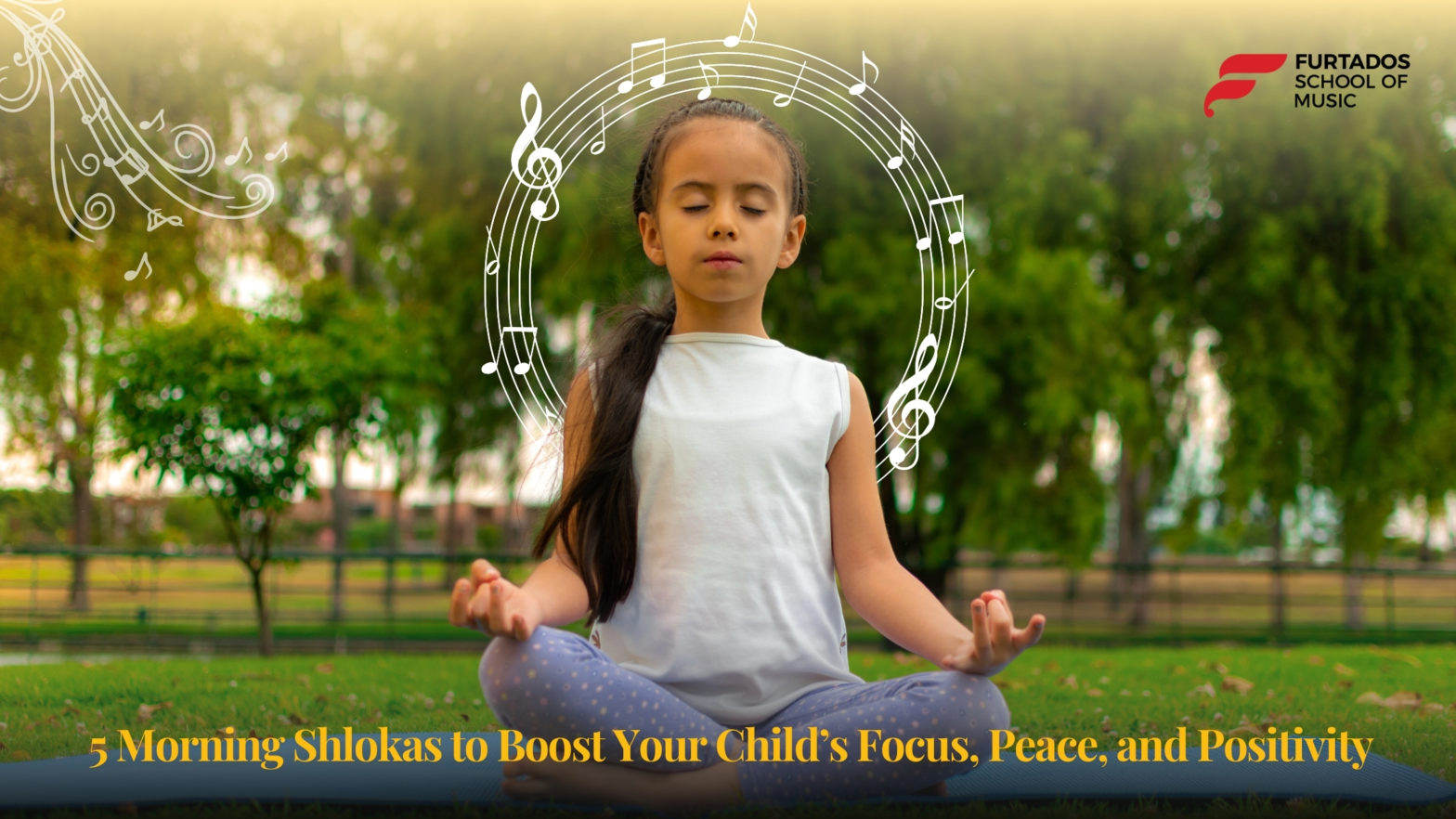In today’s fast-paced world, helping children develop focus, peace, and positivity is crucial. Morning shlokas for kids not only connect them to cultural roots but also enhance their mental and emotional well-being. Chanting shlokas is a simple yet powerful practice that has been a part of ancient Indian wisdom.
The 5 Elements of Chanting Shlokas
To maximize the benefits of chanting shlokas for children, it’s essential to follow these five key elements:
- Pronunciation: Clear and accurate pronunciation preserves the essence and energy of the shloka.
- Breathing: Proper breath control while chanting enhances concentration and mindfulness.
- Focus: Maintaining focus during chanting boosts memory and awareness.
- Consistency: Daily practice of shlokas builds discipline and positive habits.
- Understanding: Understanding the meaning of each shloka helps children connect more deeply with the practice.
5 Easy Morning Shlokas for Kids
Here are five simple and powerful morning shlokas for kids that are easy to chant and remember:
-
Saraswati Vandana
“Saraswati Namastubhyam, Varade Kaama-Roopini
Vidyarambham Karishyami, Siddhir Bhavatu Me Sada”
Meaning: I bow to Goddess Saraswati, the giver of knowledge. Bless me as I start my learning journey.
Benefit: Enhances focus, memory, and learning abilities.
-
Gayatri Mantra
“Om Bhur Bhuvah Svah,
Tat Savitur Varenyam
Bhargo Devasya Dhimahi,
Dhiyo Yo Nah Prachodayat”
Meaning: We meditate on the divine light that inspires and enlightens our intellect.
Benefit: Sharpens intellect and encourages positivity.
-
Shanti Mantra
“Om Sahana Vavatu, Sahanau Bhunaktu
Sahaveeryam Karavavahai
Tejasvinavaditamastu Ma Vidvishavahai
Om Shanti Shanti Shanti”
Meaning: May we be protected and nourished. May we gain strength and learn together. May there be no ill feelings between us. Peace, peace, peace.
Benefit: Promotes peace, cooperation, and harmony.
-
Vakratunda Mahakaya
“Vakratunda Mahakaya, Surya Koti Samaprabha
Nirvighnam Kurume Deva, Sarva Karyeshu Sarvada”
Meaning: O Lord with a curved trunk and immense power, please remove all obstacles from my path.
Benefit: Helps children build confidence and overcome difficulties.
-
Guru Mantra
“Gurur Brahma, Gurur Vishnu, Gurur Devo Maheshwara
Guru Saakshaat Para Brahma, Tasmai Shri Gurave Namah”
Meaning: The teacher is the creator, sustainer, and destroyer. I bow to the divine teacher.
Benefit: Fosters respect for teachers and mentors, enhancing humility.
The Many Benefits of Chanting Shlokas for Children
Incorporating shlokas to improve children’s concentration has numerous advantages:
- Mental Clarity: Regular chanting calms the mind, increasing focus and concentration.
- Emotional Balance: It helps in reducing anxiety and stress, promoting a sense of inner peace.
- Memory and Retention: Memorizing shlokas improves recall and sharpens memory.
- Cultural Connection: It helps children stay connected to their cultural heritage and values.
- Spiritual Growth: Chanting shlokas instills discipline, mindfulness, and a positive outlook.
How Furtados School of Music Encourages Learning Shlokas
At Furtados School of Music (FSM), we believe in nurturing a child’s holistic growth through a blend of music and cultural wisdom. Our programs go beyond traditional music lessons to include the practice of chanting shlokas, helping children develop a balanced mind and a calm spirit.
- Interactive Learning: FSM incorporates shlokas into its curriculum through engaging and interactive methods that make learning enjoyable.
- Expert Instructors: Our experienced teachers guide children on correct pronunciation, understanding meanings, and maintaining rhythm.
- Integrated Approach: We blend music and shlokas to make learning creative and relatable, helping children connect with the essence of each chant.
- Holistic Development: Through shlokas, FSM emphasizes focus, discipline, and emotional stability, ensuring children experience overall growth.
- Online and Offline Classes: FSM offers flexible learning formats, making it convenient for children to learn shlokas from anywhere.
If you’re looking to introduce your child to the enriching world of music and shlokas, explore FSM’s courses today!
FAQs
- At what age can children start learning shlokas?
Children as young as 4 years old can begin learning simple shlokas with guidance.
- How can I encourage my child to chant shlokas regularly?
Create a dedicated morning
